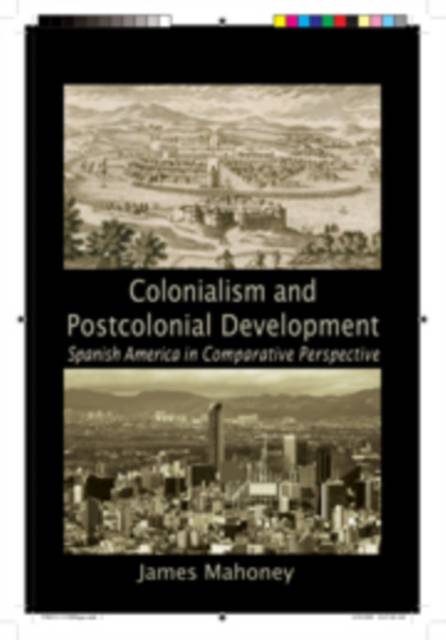
- Afhalen na 1 uur in een winkel met voorraad
- Gratis thuislevering in België vanaf € 30
- Ruim aanbod met 7 miljoen producten
- Afhalen na 1 uur in een winkel met voorraad
- Gratis thuislevering in België vanaf € 30
- Ruim aanbod met 7 miljoen producten
Zoeken
€ 181,95
+ 363 punten
Uitvoering
Omschrijving
In this comparative-historical analysis of Spanish America, James Mahoney offers a new theory of colonialism and postcolonial development. The book explores why certain kinds of societies are subject to certain kinds of colonialism and why these forms of colonialism give rise to countries with differing levels of economic prosperity and social well-being. Mahoney contends that differences in the extent of colonialism are best explained by the potentially evolving fit between the institutions of the colonizing nation and those of the colonized society. Moreover, he shows how institutions forged under colonialism bring countries to relative levels of development that may prove remarkably enduring in the postcolonial period. The argument is sure to stir discussion and debate, both among experts on Spanish America who believe that development is not tightly bound by the colonial past, and among scholars of colonialism who suggest that the institutional identity of the colonizing nation is of little consequence.
Specificaties
Betrokkenen
- Auteur(s):
- Uitgeverij:
Inhoud
- Aantal bladzijden:
- 424
- Taal:
- Engels
- Reeks:
Eigenschappen
- Productcode (EAN):
- 9780521116343
- Verschijningsdatum:
- 15/02/2010
- Uitvoering:
- Hardcover
- Formaat:
- Ongenaaid / garenloos gebonden
- Afmetingen:
- 163 mm x 239 mm
- Gewicht:
- 725 g

Alleen bij Standaard Boekhandel
+ 363 punten op je klantenkaart van Standaard Boekhandel
Beoordelingen
We publiceren alleen reviews die voldoen aan de voorwaarden voor reviews. Bekijk onze voorwaarden voor reviews.











